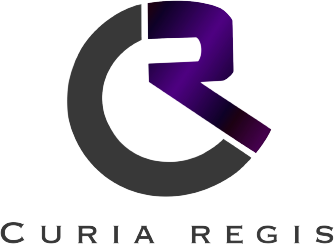On 8 April 2025, the Monetary Authority of Singapore (MAS) issued a consultation paper outlining proposed amendments to its Anti-Money Laundering and Countering the Financing of Terrorism (AML/CFT) Notices and Guidelines. The consultation period closes on 8 May 2025, with an anticipated effective date of 30 June 2025.
These swift and comprehensive changes are aimed at strengthening Singapore’s financial system against evolving risks and ensuring alignment with the latest Financial Action Task Force (FATF) standards. Given the breadth of the proposals, Financial Institutions (FIs) and Variable Capital Companies (VCCs) are highly encouraged to proactively prepare for the shift in compliance requirements and familiarise themselves with it.
Key Areas of Proposed Changes
1. Formal Inclusion of Proliferation Financing (PF)
A critical development is the formal integration of Proliferation Financing (PF) into Singapore’s AML/CFT regime. Although offenses related to the proliferation of weapons of mass destruction are already captured as predicate offenses under Singapore’s Corruption, Drug Trafficking and Other Serious Crimes (Confiscation of Benefits) Act 1992 (CDSA), MAS now proposes to explicitly define PF within the applicable AML/CFT Notices.
FIs and VCCs will be required to:
- Identify, assess, and mitigate PF risks within their existing ML/TF frameworks.
- Update internal methodologies to incorporate PF risk factors.
- Document PF risk assessments and ensure appropriate monitoring and controls.
This enhancement addresses the FATF’s updated requirements and emphasizes MAS’ commitment to pre-emptively tackling emerging threats.
2. Expanded Obligations for Trust Companies
MAS is proposing substantial amendments to MAS Notice TCA-N03, which regulates trust companies. Notably:
- The definition of “trust relevant party” will be expanded to include protectors, classes of beneficiaries, objects of powers, and others with influence over trust property.
- Trust companies must obtain and maintain additional information, including:
- Identities of protectors and classes of beneficiaries.
- Details of individuals exercising ultimate effective control.
- Full trust instrument information such as name, identifier, purpose, and place of administration.
Paragraphs 6.14 to 6.16 of MAS Notice TCA-N03 containing crucial AML/CFT obligations, will be expected to apply to all trust relevant parties.
These changes significantly raise the due diligence expectations placed on trust companies, necessitating operational adjustments and deeper client engagement, in line with the FATF’s higher risk stance of trust companies and their potential to be misused.
3. Stricter Timelines for Suspicious Transaction Reports (STRs)
MAS proposes clarifications and enhancements to STR filing requirements:
- General STRs: Must be filed within five (5) business days from the establishment of suspicion, unless extraordinary circumstances exist.
- Sanctions-related STRs: Must be filed as soon as possible, but no later than one (1) business day after suspicion is formed.
- Submission process: Instead of automatically submitting copies to MAS, FIs and VCCs will only submit STRs upon specific request.
This update emphasizes the need for timely escalation and swift action when handling suspicious activities, particularly those linked to sanctions regimes.
4. Enhanced Screening and Due Diligence Expectations
Further proposed updates to the AML/CFT Guidelines include:
- Screening using information from online search engines, including searches in native languages and databases relevant to the location where the entity being screened is based.
- Strengthened expectations around verifying source of wealth and source of funds, especially for significant gifts.
- Enhanced scrutiny to detect fraudulent data and higher-risk shell companies.
- Emphasis on cross-business unit information sharing within institutions.
- Inclusion of participation in tax amnesty programs as a red flag for potential tax crimes.
These measures reflect MAS’ evolving supervisory expectations and the need for deeper, more contextually aware due diligence practices.
5. Governance Enhancements and Risk Management Integration
MAS will require:
- Prioritization and prompt review of higher ML/TF risks.
- Escalation of unresolved high-risk concerns to senior management.
- Integration of national ML, TF, and PF risk assessments into enterprise-wide risk frameworks.
These governance expectations are designed to embed a culture of risk awareness and responsiveness at all organizational levels.
Recommendations for Financial Institutions and VCCs
Given the broad scope and compressed timeline, FIs and VCCs are strongly encouraged to:
- Conduct a comprehensive gap analysis of their current AML/CFT policies and procedures.
- Update internal risk assessments to include PF risks.
- Review client onboarding and monitoring frameworks to meet the enhanced trust company requirements.
- Strengthen internal escalation processes for suspicious activities.
- Train compliance teams and frontline staff on the new requirements and filing timelines.
A proactive and strategic response is essential to maintain regulatory compliance, protect institutional integrity, and uphold Singapore’s global reputation as a trusted financial hub.
Curia Regis supports financial institutions in the region with robust Anti-Money Laundering, Countering the Financing of Terrorism and Proliferation Financing know how. This includes the implementation of tailored AML frameworks, conducting risk assessments, and monitoring for adherence to applicable regulations. If you have any queries in relation to this article, or would like to provide feedback or contribute to the consultation paper, feel free to get in touch with us at [email protected]




